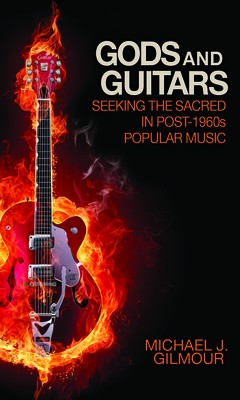
- We will send in 10–14 business days.
- Author: Michael J Gilmour
- Publisher: Baylor University Press
- ISBN-10: 1481314831
- ISBN-13: 9781481314831
- Format: 15.2 x 22.9 x 1.6 cm, kieti viršeliai
- Language: English
- SAVE -10% with code: EXTRA
Reviews
Description
Though American attitudes toward religion changed dramatically during the 1960s, interest in spirituality itself never diminished. If we listen closely, Michael Gilmour contends, we can hear an extensive religious vocabulary in the popular music of the decades that followed--articulating each generation's spiritual quest, a yearning for social justice, and the emotional highs of love and sex.
Probing the lyrical canons of seminal artists including Cat Stevens, the Rolling Stones, Bob Dylan, Eric Clapton, Joni Mitchell, Neil Young, U2, Ozzy Osbourne, Pearl Jam, Madonna, and Kanye West, Gilmour considers the ways--and reasons why--pop music's secular poets and prophets adopted religious phrases, motifs, and sacred texts.
EXTRA 10 % discount with code: EXTRA
The promotion ends in 21d.19:23:47
The discount code is valid when purchasing from 10 €. Discounts do not stack.
- Author: Michael J Gilmour
- Publisher: Baylor University Press
- ISBN-10: 1481314831
- ISBN-13: 9781481314831
- Format: 15.2 x 22.9 x 1.6 cm, kieti viršeliai
- Language: English English
Though American attitudes toward religion changed dramatically during the 1960s, interest in spirituality itself never diminished. If we listen closely, Michael Gilmour contends, we can hear an extensive religious vocabulary in the popular music of the decades that followed--articulating each generation's spiritual quest, a yearning for social justice, and the emotional highs of love and sex.
Probing the lyrical canons of seminal artists including Cat Stevens, the Rolling Stones, Bob Dylan, Eric Clapton, Joni Mitchell, Neil Young, U2, Ozzy Osbourne, Pearl Jam, Madonna, and Kanye West, Gilmour considers the ways--and reasons why--pop music's secular poets and prophets adopted religious phrases, motifs, and sacred texts.


Reviews